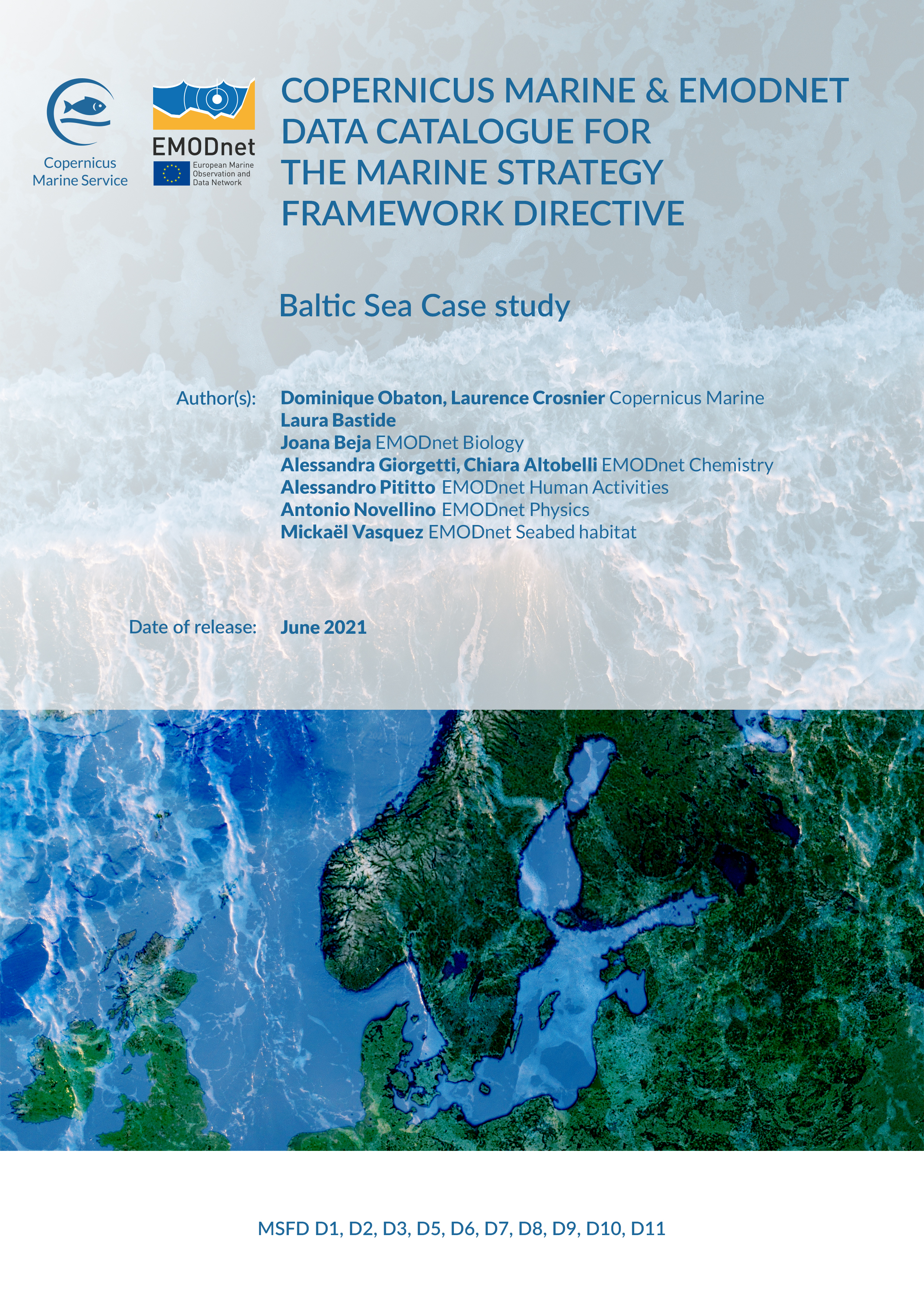The Marine Strategy Framework Directive requires from Member States detailed and coordinated input to maintain or achieve the Good Environmental Status (GES) of sea waters on the basis of qualitative descriptors: biodiversity, non-indigenous species, commercial fish species, food webs, eutrophication, seafloor integrity, hydrographical conditions, contaminants, marine litter and introduction of energy. In this process, a crucial role is played by the Common Implementation Strategy (CIS), the programme of coordination set up by Member States and the European Commission. The CIS includes four technical subgroups (TG): the TG Data - set up under the Working Group on Data Information and Knowledge Exchange, which supports Member States with data reporting obligations - and three TGs, focusing on marine litter, seabed and water noise - set up under the Working Group GES, which assists with the determination of GES. The activities concerning the other MSFD descriptors also rely on informal groups of experts.
To reach the target of a Good Environmental Status of EU marine waters defined as; “The environmental status of marine waters where these provide ecologically diverse and dynamic oceans and seas which are clean, healthy and productive", coherent marine strategies, built on advice of the political and scientific community, are in need of crucial tools to make the GES real. Examples of these tools include: the development of common approaches & optimization of resources by sharing the best technical expertise and data. MSFD technical groups have been established to comply with the criteria and standards fixed for monitoring programmes by the Commission Decision 2017/848/ EU.
Within the Technical Group on Data (the platform to discuss data and IT-related issues), a joint Copernicus Marine and EMODnet data catalogue for the Marine Strategy Framework Directive (MSFD) has been developed. It gathers all relevant marine data products from Copernicus Marine Service and EMODnet for all the MSFD descriptors (except Descriptor 4) in the Baltic Sea. The joint catalogue is available, as a PDF format (91 MB), both via Copernicus Marine Service and EMODnet Central Portal.
EMODnet Chemistry has significantly contributed to the catalogue along with EMODnet Biology, Physics, Seabed habitat, and Human Activities. The catalogue includes 132 products, ranging from models to a variety of visualizations, mainly obtained by using in situ, satellite, or a combination of the two types of data. The data products cover 57 of the most relevant variables considered to evaluate the environmental status and its trend, such as the concentration and distribution of Oxygen, Phosphate and Nitrate to detect areas enriched in nutrients; distribution of contaminants and marine litter as well as main characteristics of sea water masses (e.g. temperature, salinity, turbidity, water velocity), and the distribution of seabed habitats, plankton and human activities.
The complementarity of the Copernicus Marine Service and EMODnet portfolios has led to this solid catalogue. While EMODnet’s offer mainly focuses on in situ marine observations, Copernicus Marine Service also distributes marine data products from satellite and numerical models. Further collaboration with the MSFD technical groups is planned to adapt the catalogue to the needs of each GES descriptor. This catalogue will soon be enlarged to all European Seas and the initiative could be extended in the future to other European Directives, such as the Maritime Spatial Planning (MSP) Directive.

